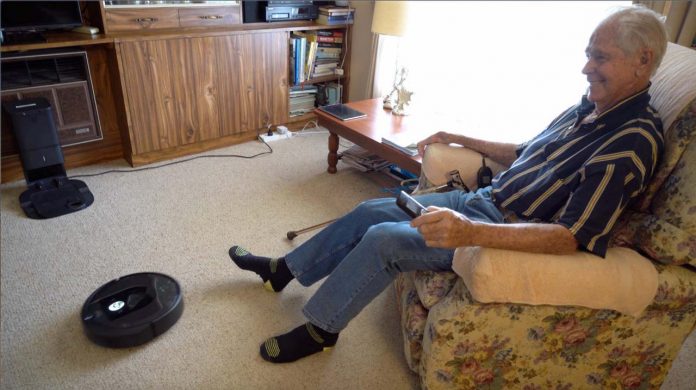Smart home technologies can be designed to assist older adults, especially those living in rural areas, to continue living at home.
In 2019, McLean Care – a specialist not-for-profit regional aged care provider – received a Commonwealth Home Support Programme (CHSP) innovation grant from the Department of Health.
As part of the grant, McLean Care partnered with researchers from Monash University’s Emerging Technologies Research Lab and Deakin University’s CADET Virtual Reality Training and Simulation Research Lab to trial smart home technologies in older people’s homes.
McLean Care recruited 23 households in regional NSW and provided them with a wide range of commercially available smart home devices with diverse functionalities. Each household was able to select a combination of devices suited to their household needs and the physical layout of the home.
Monash University researchers undertook interviews by home visits, phone calls and in-depth video calls to understand participants’ experiences with the technologies.
McLean Care collected user reviews from the participants on the devices that they had used and administered a short end-of-trial survey to capture their interest in keeping the devices, paying for them in the future and overall feedback on the project.
The main smart devices trial included:
Google Home digital voice assistant which provided voice-activated control of other smart home devices; access to music, news, weather and other information; and a touch screen and voice-activated tablet for video calls.
Aeotec smart lights consisting of smart light bulbs (installed in existing lamps) controlled by voice activation, push buttons (placed near beds and chairs) and movement sensors.
Sensor-activated coloured lights were used to remind participants of everyday activities such as taking medication and opening garage doors.
A Kogan smart kettle which is hands-free and voice controlled.
Aeotec smart switches, controlled by smart buttons, voice activation, sensors and/or tablet were trialled in 10 households and connected to existing appliances such as pedestal fans.
The Remotec air-conditioner Infrared (IR) controller was also installed at five homes to connect air conditioners to Google Home and respond to environmental conditions automatically.
Deakin University researchers collected electronic data from the devices showing participants’ usage patterns, user reviews and end-of-trial surveys. This helped them to identify the usability challenges, and hopes and anxieties older people have of smart home devices.
“Despite the many benefits smart home devices can offer the elderly population, many older Australians are concerned about being left behind in the digital age, highlighting the need for proactive initiatives to help bridge this gap,” said Professor Yolande Strengers of Monash University.
The researchers recommended smart home devices should be offered as optional extras for in-home services, providing opportunities for seniors to gain digital living skills.
“The Smart Homes for Seniors project was designed to address the research and knowledge gaps relating to older people’s use of smart home technologies. We want this project to dispel the stereotypes around older people’s interest and capacity to engage with emerging technologies,” Professor Strengers said.
“Our research has enabled us to understand how smart home devices could support older people’s wellbeing and their ability to live independently. It also identified certain challenges they experienced when using smart home devices.”
The study confirmed that technology can support positive ageing and create increased opportunities to age in place without loss of independence.
Another important aspect of being able to live independently at home is health. Australian company HSC Technology Group Ltd. has integrated a CSIRO-designed home monitoring system into their TALIUS Smart Analytics platform. The device monitors resident’s health send real-time data to their healthcare providers.

































